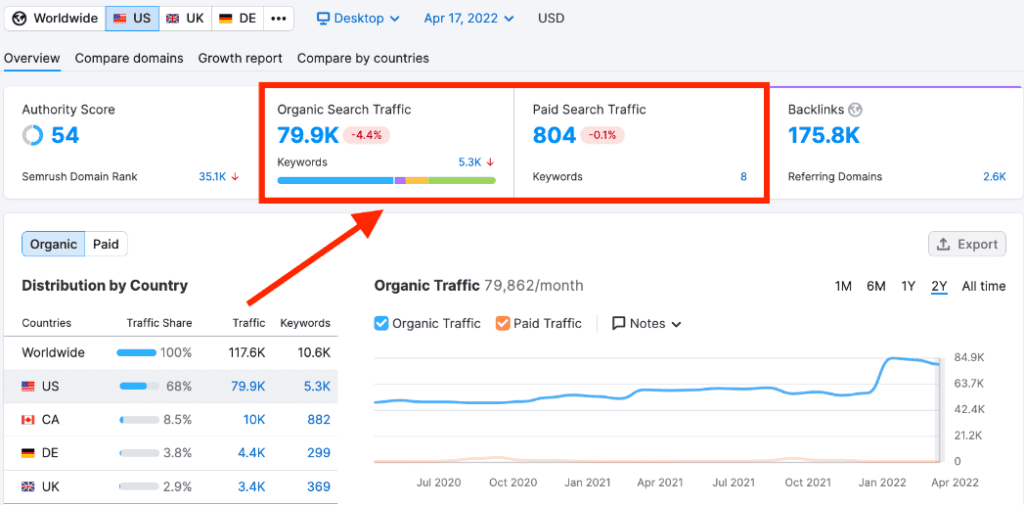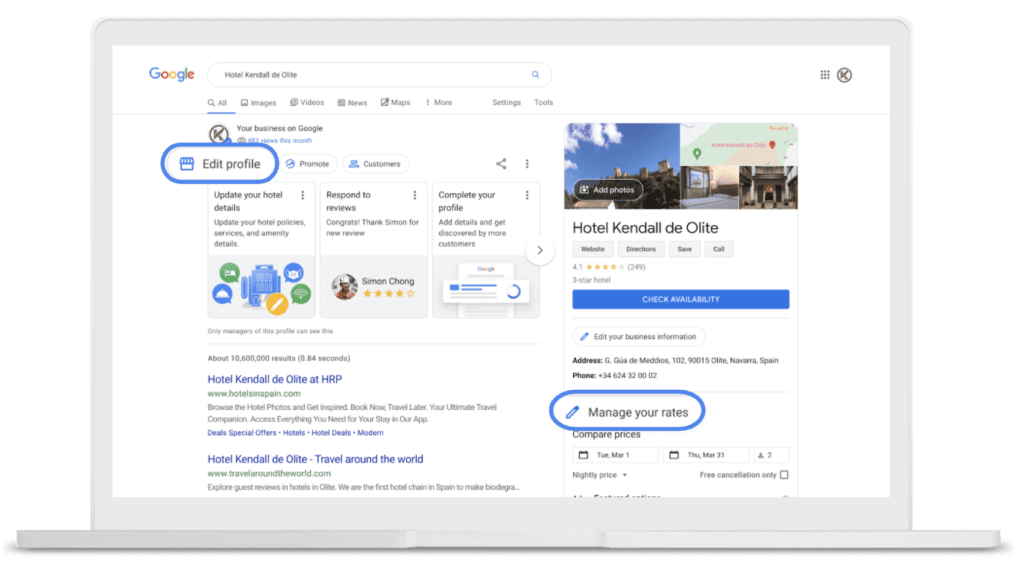Keyword research is the most effective method of SEO if you run a hotel or writing hotel content.
In my experience with content writing for hotels and doing keyword research for hotels, it is important to begin with the basics, like Googling and using a couple of free tools out there.
Sometimes, you could get confused about the right method, as keyword research could take a drastic turn quickly. One minute, the keyword is trending and most used in search engines; the next minute, the trend drops like mosquitoes drunk on insecticides. So, your content must be updated regularly with the trending keywords to remain at the top of the food chain.
Before I move further, you must understand why you need to boost your hotel’s online presence with keywords. I have mentioned a few in a previous article, so you should check it out here.

There are a few more ideas that were not mentioned in this article, I will do that here.
How to do Keyword Research in 2024
Let’s begin by looking at keyword research and how we can use it in 2024.
What is Keyword Research?
Keyword research is the process of looking up trending search words and phrases that people use to search for hotels. The keyword research for hotels will be used for specific purposes, like SEO boost or your hotel marketing.
Keyword research is an integral part of SEO. Let’s look at how the search uses these keywords to rank your hotel’s content.
How do Search Engines Work?
Crawling, indexing, and ranking are the content of the Internet, which is how search engines work. To begin, web crawlers are used to find your hotel’s content online.
After that, the information is analyzed and added to the search engine’s index during the indexing process. In the end, ranking is what gets the user the most relevant results from the index when they search.

Crawling
Web crawlers, sometimes called internet spiders, search the Internet for your hotel’s content via a process called crawling.
For instance, if I were to visit the United Kingdom in a few days. I will use search engines like Google or Bing to find and book a hotel around the city I will be visiting.
The web crawlers will crawl the web using my search words to find relevant content that is associated with my needs.
Without crawling, search engines would be unable to find search results. Crawling continuously searches for new content and retrieves recently used search words from the search engine’s index.
Search engines use an algorithm to decide which websites to crawl, how often to scan them, and how many pages to crawl per site.
Indexing
When search engines read, evaluate, and add crawled information to their index, this process is called indexing. Search engines might omit your hotel’s content that feels like duplicate, low-quality, or no-indexed items in their database to keep their quality high. When you index, it’s like a librarian putting books on their shelves.
The fact that it is an added useful content to a search engine’s collection makes it crucial. When indexing, search engines choose the content eligible for search engines. Some quality checks need to be passed; the quality checks of this content directly impact search engine results.
The data gathered by crawlers is the key to its operation. This content analysis checks whether the material is suitable for indexing by looking at its canonical URL, title tag, pictures, videos, language, and usability, among other things.

Request a Custom SEO Analysis
no Risk, No Commitment
Ranking
Search engines employ the ranking method to generate search results in response to user keyword research for hotels. Personalized, relevant, and easy-to-navigate search results are the product of sophisticated algorithms considering hundreds of variables.
One way in which search engines stand out from one another is by their ranking or the results they display. People are more inclined to use and suggest words in search engines to stay above their competitors.
If I create hotel content like a blog post on my hotel’s website, the trending keywords I have added keep the content ranking on Google’s first page.

How to Identify Keyword Opportunities
When identifying keyword opportunities, you have to keep in mind your niche, which is your hotel or hospitality niche. You use these keywords to create helpful content to get your content out to the public. If your hotel is to expand via online advertising, you must take advantage of keyword opportunities to grow your content.
So the question here is, what do you look for when you use a keyword research tool? You need to look for the search engine volume, competition, CPC (cost-per-click), and opportunity score. You can broaden your reach by refining your results with your hotel keywords. Your hotel’s keyword is how you find other relevant keywords to boost your content.
Tools to use for Keyword Research
It’s important for content creators, online publishers, and SEO experts who want to maximize their current content, delve into uncharted territory, and stay abreast of new prospects in their field. Suppose you are just starting out on this keyword journey. In that case, you should take advantage of free tools like Keyword Generator, Ahrefs Webmaster Tools, ChatGPT, Sonar, GetKeywords, Ryan Robinson’s Keyword Tool, QuestionDB, Keywords Everywhere, and more. My personal favorite is Ahrefs. Ahrefs gives you detailed results, including keyword ranking and search volume. Keyword Everywhere is also a good tool if you are someone who does a lot of research before you start writing. Keyword Everywhere creates generic keywords for your search result to come up with potential ranking figures.
What are the Things to Pay Attention to:
Keyword Intent
Keyword research is important for aligning content with the target audience’s intent and expectations. By using keywords that match the customer journey stage, businesses can:
- Attract more relevant and qualified traffic
- Increase conversion rate
- Build trust and loyalty
As a buyer gets closer to a purchasing decision, the keywords they use in search tend to become more specific. The queries go from general to long-tail keywords, which are specific keywords that consist of multiple words.
Here are some essential parts of a customer journey map:
- Customer and/or user persona
- Phases of the purchase journey
- Customer touchpoints
- Customer thoughts and actions
- Pain points
- The customer’s emotional journey
What Does Intent Mean?
In the context of keyword research, this refers to clarifying and understanding the specific terms and words commonly used in the hotel industry. It includes describing hotel-related words and ideas to ensure they are understood correctly and can be used in your content strategy.

What Terms Are People Searching For?
This involves the process of identifying and analyzing the search words and terms that hotel guests are actively using when looking for a hotel to stay or other related inquiries. By understanding user preferences, you can tailor your content to match the language and phrases your target audience is using in search engines.
Diversify
When it comes to hotel marketing, diversifying keyword tactics means using more than just general or very competitive terms. It means using a lot of different keywords that are related to different parts of your hotel, like events, services, and keywords. Diversification increases your chances of ranking for a wider range of search terms and helps you reach a wider audience.
How Often Are Those Terms Searched?
Analyzing how frequently hotel terms are searched by providing insights into their popularity. It helps prioritize keywords with a higher search volume, ensuring that your content targets terms actively sought after by users.
Understanding the Long Tail
Understanding the benefits of targeting long-tail keyword research for hotels involves fully understanding your content value and what your potential visitors need to see.
Long-tail keywords may have lower search volume individually but collectively can attract a highly targeted audience. Using the long tail helps you create content that meets specific wants and needs, making your website more relevant in search results.
Hotel keyword examples
Here are examples of hotel-related keywords, including short-tail and long-tail variations:
Short-Tail Keywords:
Hotel, Resort, Accommodation, Lodging, Stay, Inn, Motel, Suite, BnB (Bed and Breakfast)
Long-Tail Keywords:
1. Luxury beachfront hotel with spa
2. Family-friendly resort with pool and kids club
3. Pet-friendly accommodation near national parks
4. Boutique hotel with rooftop terrace in the city center
5. Budget-friendly lodging for backpackers
6. Historic inn with charming Victorian architecture
7. Romantic bed and breakfast with jacuzzi in-room
Local Specific Keywords:
1. Waterfront resort in [City]
2. Airport hotel with shuttle service in [Airport Name]
3. Budget-friendly lodging near [Tourist Attraction]
4. Family resort near [Theme Park]
5. Business hotel in [City]
6. Pet-friendly accommodation in [City]
Seasonal Keywords:
1. Summer beachfront hotel deals
2. Winter ski resort with fireplace in-room
3. Spring bed and breakfast with garden views
4. Fall foliage retreat in the mountains
5. New Year’s Eve party at a city center hotel
6. Easter weekend getaway with family-friendly activities
7. Thanksgiving bed and breakfast with a traditional feast
8. Christmas vacation package at a cozy inn
9. Valentine’s Day romantic suite with champagne
10. Fourth of July celebration at a lakeside resort
Format of the content
The best way to place keywords in blog posts is to use them in the post’s names, headers, and body. You should update blog posts regularly with the trending keywords to keep them relevant. Titles and meta descriptions for landing pages need to include keywords, and the content needs to be short, interesting, and clear about the next steps.
Landing page content focused on the user puts important information and video elements at the top of the list to keep visitors interested. Titles, descriptions, and comments for multimedia content like podcasts, slideshows, and videos need to include keywords.
Keep a natural flow, not keyword stuffing, ensuring keyword density is balanced and your website design is mobile-friendly, voice search-optimized, and adaptable. Regular analysis, like user engagement, bounce rates, and keyword performance, allows you to make small changes that help improve your online presence.
Consult with experts
In extreme cases, your website can get banned from indexing on search engines, which you can’t fix. If you’re unfamiliar with troubleshooting and resolving penalties, consider partnering with a reputable keyword researcher to provide you with easy step-by-step instructions on how search engines work.
Now that you’re ready to get your site indexed crawled, and ranked in search results.


